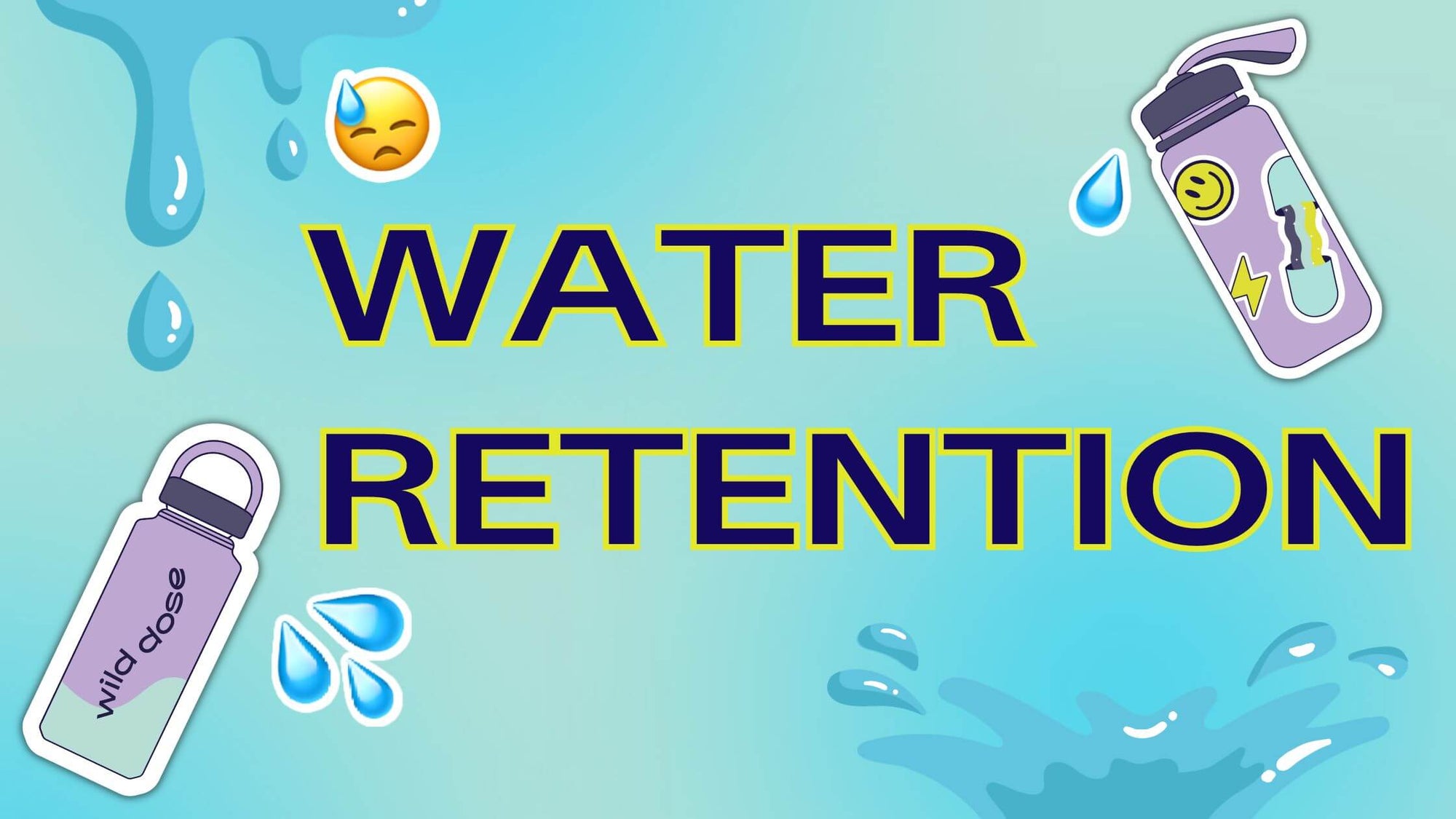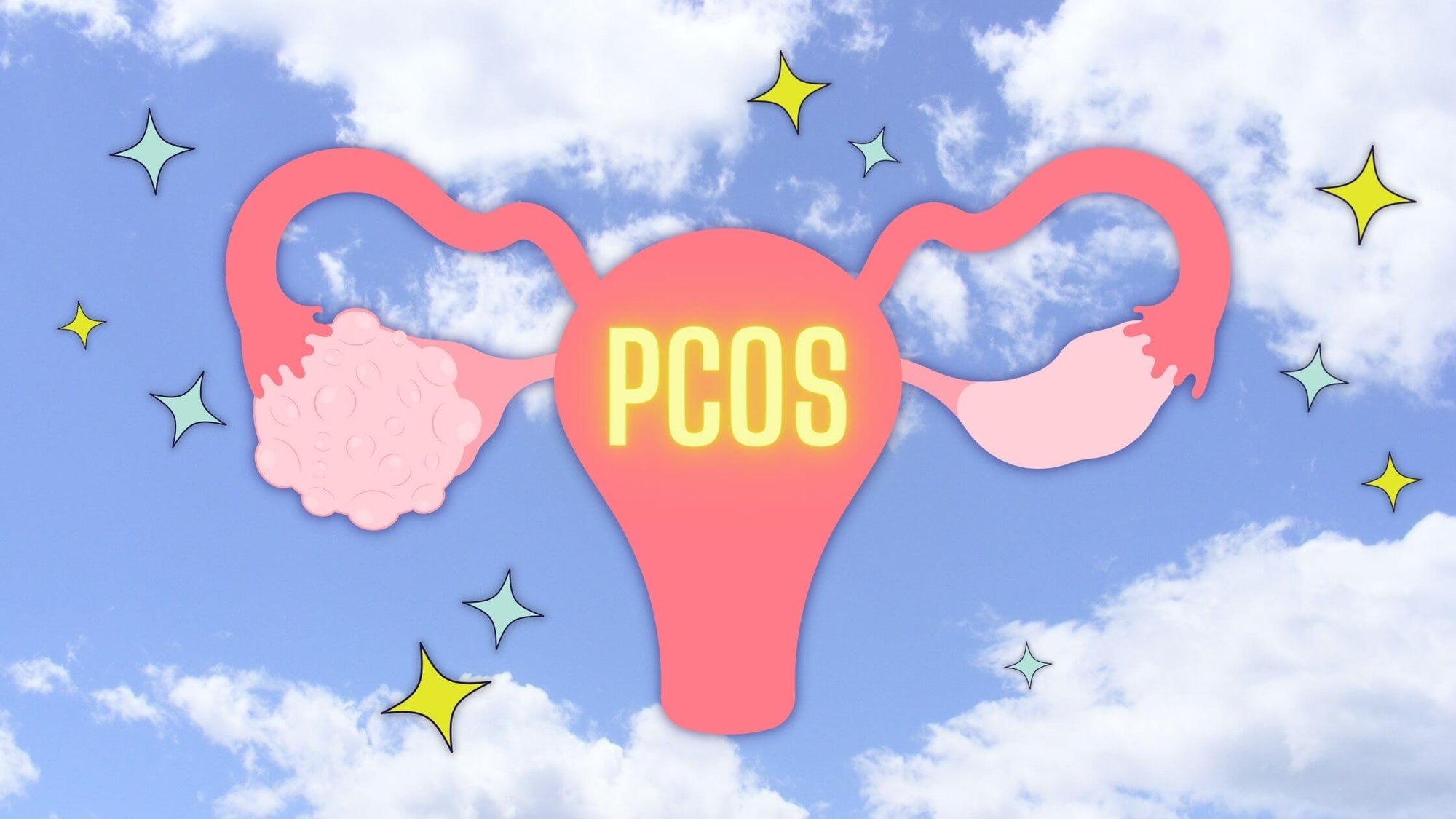Can Stress Cause Bloating?
Stress has systemic effects, meaning it affects every part of the body. You can thank our evolution for this.
Back in hunter-gatherer days, stress came in the form of extreme physical danger (such as a wild animal attack) or starvation. Therefore, the brain developed similarly extreme responses to stress to ensure the human race could continue and wouldn’t die out.
Acute (short-term) stress is a good thing. It’s what enables you to respond to potential dangers and hazards in your life. For example, the rush of stress hormones you experience when you accidentally walk out into the road in front of an oncoming car enables you to react quickly and get out of the way.
However, when stress becomes chronic (long-term), it can start to cause a range of physical and emotional problems. One of the most common side effects of ongoing stress is chronic bloating.
Stress and bloating might only seem distantly related, but there are clear explanations as to why chronic stress leads to digestive disturbances. We’re going to delve deeper into the relationship between stress and bloating in this article. We will finish up with some top tips for stress management and natural bloating remedies to relieve your symptoms.
Does Stress Cause Bloating?
We’ve sort of answered this question above already, but let’s answer ‘Does stress cause bloating?’ in more detail.
When your brain perceives stress, whether this is in the form of a too-high workload, overexercising, or a significant reduction in your food intake, it signals to your adrenal glands to start producing ‘stress’ hormones. Stress hormones include cortisol and adrenaline.
This response to stress is built into our DNA. Or should we say, it’s built into our brains. The oldest parts of the brain still operate as though we’re hunter-gatherers in constant danger of being attacked or starved. So, the stress response that we had all those years ago remains today, even though modern-day stresses are completely different.
In fact, most modern-day stresses don’t put us in imminent danger. Yes, we’re all stressed due to being burnt out at work, financially strained, or let down by ex boyfriends/girlfriends, but this doesn’t compare to the dangers our ancient ancestors would have faced.
So, why does stress cause stomach issues?
When cortisol and adrenaline are released into the bloodstream, they cause blood to get diverted away from your digestive tract to your skeletal muscles. The aim of this is to provide your muscles with the oxygen and nutrients they need to help you run away from danger or fight it.
When your digestive system receives less blood, the movement of food through your gut slows down. When food remains stagnant in your gut, it can cause a ‘backlog’ that results in bloating and constipation.
Main Causes of Bloating From Stress
Ultimately, the bloating caused by stress comes down to the impact of stress on the digestive system. Stress takes blood away from your digestive tract, making it less efficient at breaking down ingested food and absorbing nutrients.
When your food takes longer to break down inside your digestive tract, the risk of bloating, constipation, excess gas, and abdominal cramps increases. You’re much more likely to experience negative digestive symptoms when you’re stressed, worried, or anxious, regardless of how great your digestion is usually.
Tips to Manage Stress
Managing stress is something that we all need to do nowadays.
You’ll find that with effective stress management, your digestion significantly improves (as well as any other negative symptoms you’re experiencing because, remember, stress impacts every part of the body)! You’ll see improvements in your physical and mental well-being with better sleep, motivation, and mood.
Here are some helpful tips for managing stress, particularly if you’re bloated frequently.
1. Cut down your workload
In the modern day, one of the most prevalent causes of stress is being overworked. Employers are expecting more of their employees, and we’re all feeling the pressure to succeed and even overachieve.
While it’s great to work hard and work your way up in your chosen career, you must also consider your well-being. Your health is everything! If you’re overly stressed, you may become unwell and be unable to continue working and achieving your goals.
Reducing your workload is a great way to relieve some stress and focus on your well-being. You can still work hard and succeed in your dream job, but you’ll be able to do so with your health intact. Consider outsourcing some of your jobs to colleagues or cutting back on your number of clients to reduce your work-related stress.
2. Move more
Exercise is a great stress reliever. Not only does it enable you to spend some time on yourself, but it also stimulates the release of positive hormones in your body, such as serotonin, dopamine, and endorphins, which elevate your mood and make you feel motivated. Exercising outside enables you to get some sunlight and fresh air.
Physical activity also provides the opportunity to socialise with loved ones or meet new people if you join a gym or running club. Add a few workouts into your weekly routine to start seeing the amazing stress-busting benefits of exercise.
Stretch and relax your muscles
Muscle stretching and relaxation can have incredible benefits for your physical and emotional health. When you’re stressed, your muscles will become tighter and more tense. Stretching and relaxing your muscles can help to relieve this tension and provide relief.
Take a look online to find a full body stretching routine. Try this routine a few times a week to keep your muscles nice and relaxed.
3. Practice deep breathing exercises
When you’re highly stressed, the sympathetic branch of your autonomic nervous system dominates over the parasympathetic branch. Deep breathing activates your parasympathetic nervous system, which is responsible for resting and digesting.
Follow the 4-7-8 deep breathing method, where you breathe in for four seconds, hold your breath for seven seconds, and exhale for eight seconds. This technique has been shown time and time again to improve relaxation, mood, and sleep.
4. Slow down!
Life if busy and we can often end up rushing around non-stop, failing to ever take a break. Consciously slowing down, taking time away from work, and spending a day or two relaxing each week can do wonders for your mental health. Relaxing and ‘switching off’ enables you to rest, recover, and re-energise, relieving stress and anxiety.
Not everything needs to be a rush. Not everything needs to be done right now! Don’t be afraid to ignore your work emails until the next day, say no to making plans with friends, or spending your money on the luxuries and holidays that you deserve.
5. Make time to enjoy hobbies
Hobbies are stress-relieving activities that you can enjoy outside of the workplace. Whether you enjoy reading, sports, weightlifting, writing, drawing, playing an instrument, doing crosswords, or playing computer games, it’s important to spend time on the things you love.
Having a hobby enables you to separate your personal life from your work life. It also offers you the opportunities to expand your mind, enhance your cognitive skills, and meet like-minded people.
How to Relieve Bloating
You now know some great stress-reducing activities to try. So, now let’s take a look at how you can use dietary and lifestyle changes to tackle bloating.
1. Consume prebiotics and probiotics
Prebiotics are carbohydrate fibres that you can find in fruits, vegetables, whole grains, legumes, beans, nuts, and seeds. These fibres are beneficial for digestion and can relieve symptoms like bloating, gas, and constipation.
Prebiotics fuel probiotic bacteria in the gut. Lactobacillus, Bifidobacterium, Enterococcus, and other probiotic bacterial species reside naturally in your gut. When you eat prebiotic-containing foods, your gut bugs break them down and use them to perform various beneficial functions.
Probiotic bacteria help to produce vitamins and short-chain fatty acids. They also help your digestive enzymes break down the foods you eat into smaller molecules that your body can absorb into the bloodstream and transport to your cells to use for energy.
Alongside consuming prebiotic foods, taking a probiotic supplement can aid your digestive system and prevent bloating. At Wild Dose, we have a highly effective probiotic supplement, A Dose For Bloating, which contains two billion probiotic bacteria.
2. Skip the trigger foods
If you find that certain foods cause you to bloat much more than others, you might need to cut these foods out of your diet. Even if they’re your favourite ingredients or snacks, you’ll need to make compromises if you want to rid yourself of bloating once and for all.
Common trigger foods for bloating include:
- High FODMAP foods
- Foods that are high in saturated fats
- High-salt foods
- Sugary foods and drinks
It might be a good idea to keep a food diary so you can identify more easily which foods trigger your digestive symptoms. You can then work towards removing these foods or reducing your intake of them to relieve bloating naturally.
3. Increase your fibre intake
We mentioned prebiotic fibres above, but we wanted to circle back to them. Fibre can be soluble or insoluble. It’s the latter that can support digestion and reduce bloating. Insoluble fibre doesn’t dissolve in water, so aids the movement of food through your digestive tract, reducing the risk of food getting ‘stuck’ and causing bloating and gas.
Foods that contain lots of insoluble fibre include whole wheat products, whole bran products, potatoes, fruits, and vegetables (particularly cauliflower and green beans).
4. Avoid eating too quickly
When you wolf down your food, you’re more likely to swallow air while you’re eating. This air travels down your oesophagus and into your stomach, then your lower digestive tract, where it can get trapped. Having lots of trapped air can lead to increased burping, flatulence, and bloating.
To prevent bloating, try and slow down when you eat. Take the time to appreciate and savour every bite of food that enters your mouth and be sure to chew your food properly before swallowing it. Mindful eating is a great way to improve your relationship with food and enhance mealtimes.
5. Get tested for food sensitivities and intolerances
Food intolerances are reactions to foods that often cause you to feel slightly unwell or experience digestive symptoms after consuming these foods. It’s thought that food intolerances affect around 1 in 5 people, with some of the most common intolerances being gluten, lactose, FODMAPs, and fructose.
You might suspect that you have a food intolerance, as you will find that you get bloated and experience abdominal cramps after eating the foods that you’re sensitive or intolerant to. However, you can get food intolerance tests performed at GP surgeries and hospitals to confirm intolerances.
To avoid nasty digestive systems, always aim to avoid the foods to which you’re sensitive or intolerant. Plus, some food intolerances can be life-threatening, which is more of a reason to avoid these foods!
6. Try massaging your abdomen
Something as simple as massaging your lower abdomen can be effective at relieving bloating. The soothing feeling of gentle massage on the skin covering the intestines can encourage gas to move through the colon and out of your body, reducing abdominal bloating, swelling, and discomfort.
Avoid massaging too hard. You don’t want to press deep into your abdomen or cause any serious discomfort. It should be relaxing!
7. Reduce your physical and psychological stress
Linking everything nicely together, our final tip for relieving bloating is to reduce your stress. Both physical and psychological stress can wreak havoc on your digestion, so managing your stress is an important component of keeping your digestive system healthy.
While exercise is important for stress management, too much exercise can cause excess stress on the body. Overtraining can cause the body to feel unsafe and disrupt hormone production, leading to a range of negative side effects.
Similarly, too much psychological stress can increase the levels of stress hormones in the body and negatively influence multiple aspects of your health.









